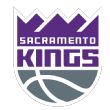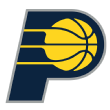Why did the Sacramento Kings just trade away their best young player?
In a shocking move reported Tuesday by ESPN's Adrian Wojnarowski, the Kings sent second-year guard Tyrese Haliburton to the Indiana Pacers as part of a deal that lands them two-time All-Star Domantas Sabonis.
Sabonis immediately becomes Sacramento's best player, important for a franchise that hasn't had an All-Star since agreeing to trade DeMarcus Cousins to the New Orleans Pelicans on the night of the 2017 All-Star Game in New Orleans.
Yet the cost was immense. Haliburton, a steal for the Kings as the No. 12 pick of the 2020 draft, finished third in Rookie of the Year voting last season and had taken a step forward as a starter during year two. At 21, Haliburton has a bright future with Indiana.
How will Sabonis fit on a Sacramento roster that was already heavy on frontcourt players? What moves are coming for the rebuilding Pacers after they landed Haliburton? And what value do the other players exchanged Thursday, including Buddy Hield and Justin Holiday, have? Let's break it down.
The deal
Indiana Pacers get: Tyrese Haliburton, Buddy Hield, Tristan Thompson
Sacramento Kings get: Domantas Sabonis, Jeremy Lamb, Justin Holiday, 2027 second-round pick
Kings: D+
 In the lead-up to the trade deadline, I quoted one of Billy Beane's five rules for trading, as recorded by Michael Lewis in the book "Moneyball":
In the lead-up to the trade deadline, I quoted one of Billy Beane's five rules for trading, as recorded by Michael Lewis in the book "Moneyball":
"The day you say, 'I have to do something,' you're in trouble. Because you are going to make a bad deal. You can always recover from the player you didn't sign. You may never recover from the player you signed at the wrong price."
Because of their 15-year playoff drought, tied for the longest in NBA history, the Kings felt they had to make a move before Thursday's trade deadline. It cost them Haliburton. Sacramento has been in the NBA's wilderness so long because of a series of short-sighted moves designed to get back to the playoffs. Instead of learning from those mistakes (or Beane, just down I-80 in Oakland), the Kings continue to repeat them.
To be clear, Sacramento got a very good player in Sabonis, who is performing at an even higher level this season than he did as an All-Star pick each of the last two. He easily could have been chosen to the Eastern Conference roster. Sabonis is also on a team-friendly contract extension signed before he emerged as an All-Star that has an $18.5 million base salary this year and next before increasing to $19.4 million in 2023-24, the final season of the deal.
At 25, Sabonis is just coming into his prime and should continue to perform at this level through the remainder of his contract and beyond. Still, this is undoubtedly a win-now move for the Kings. After all, Sabonis is four years older than Haliburton. And although Sabonis' contract is favorable, Haliburton might just have one of the very best in the NBA. Because he dropped to the late lottery, Haliburton will make just $10 million combined over the two remaining seasons of his rookie contract before being eligible for an extension.
There's also the question of fit. The Pacers struggled for years with how to pair Sabonis and starting center Myles Turner before finally breaking the duo up this season. (When, admittedly, Indiana actually played by far its best basketball with both Sabonis and Turner on the court.) Now, Sabonis is heading to a Sacramento team that just re-signed a quality starting center (Richaun Holmes) to a four-year contract. Unlike Turner, Holmes isn't a floor spacer, creating bigger offensive issues to go along with the challenges of Sabonis trying to chase quicker players on the perimeter.
Those fit issues extend to Sabonis and incumbent forward Harrison Barnes. The Kings have been far better this season when Barnes plays power forward, getting outscored by just 4.6 points per 100 possessions according to my analysis of lineup data from NBA Advanced Stats. When Barnes slides to small forward, where he'll presumably start alongside Holmes and Sabonis, Sacramento's net rating drops to a ghastly minus-12.8 points per 100 possessions. Some of that difference is a product of hot opponent 3-point shooting, but not all of it.
Barring another significant trade between now and the deadline, I think those fit concerns put Sacramento behind the New Orleans Pelicans in the battle for the 10th and final play-in spot in the Western Conference after the Pelicans added guard CJ McCollum in a trade reported earlier Tuesday.
Down the road, the Kings may have more ability to center the roster. They're also surely counting on the development of guards De'Aaron Fox and Davion Mitchell. If there's a silver lining to trading Haliburton, it's that at least Sacramento sold at a high point in his value. Trading Fox now would have been selling low, as he's struggled this season.
Because Fox's poor season has coincided with Haliburton moving into the starting lineup and eventually assuming lead ballhandling duties, it's been blamed on the players being unable to play together. Certainly, Fox's poor outside shooting (25% on 3s this season, bringing his career mark to 31%) makes him less useful when someone else has the ball. Still, data from NBA Advanced Stats shows Fox has actually scored less efficiently with Haliburton on the bench. Whatever has hampered him goes beyond the pairing with Haliburton.
As for Mitchell, the Kings are understandably excited about his defensive potential, particularly on a team that is 29th in defensive rating after finishing last in 2020-21. However, the value Mitchell has brought as a defender has been given back at the offensive end, where his strong 3-point shooting for last year's national champions at Baylor hasn't translated to the NBA. Mitchell has made just 32% of his 3-point attempts and 47% of his 2s, making him one of the league's least efficient scorers.
In the short term, Sacramento would probably be better off starting Holiday at shooting guard and bringing Mitchell off the bench. In the long term, whether Mitchell can develop as well offensively as he did in college will help determine how much the Kings regret trading Haliburton.
The last thing worth considering here is the path not taken for Sacramento. Ordinarily, a team 15 games below .500 would be looking to trade away veterans, but the advent of the play-in tournament and an atypically weak Western Conference have the Kings adding instead. Alternatively, Sacramento could have looked to deal Barnes for picks or prospects to build around Fox and Haliburton. Now, the Kings will keep him to push for a playoff spot.
An optimist would compare Sacramento's move to the Chicago Bulls adding Nikola Vucevic at last year's trade deadline, a deal that busted in the short term (the Bulls never got close to the play-in) but set them up to make a move this year after adding Lonzo Ball, Alex Caruso and DeMar DeRozan. Perhaps Sabonis can be that same kind of anchor for the Kings.
Unfortunately, such optimism has rarely been rewarded in Sacramento.
Pacers: A
 Conversely, the Vucevic trade had been used as a measuring stick for what the Pacers wanted in return for Sabonis. Instead of getting the portfolio of picks and players the Orlando Magic did (yielding Wendell Carter Jr. and the pick used to take promising forward Franz Wagner, with another one still to come), Indiana got one of the best young players to change teams in recent memory.
Conversely, the Vucevic trade had been used as a measuring stick for what the Pacers wanted in return for Sabonis. Instead of getting the portfolio of picks and players the Orlando Magic did (yielding Wendell Carter Jr. and the pick used to take promising forward Franz Wagner, with another one still to come), Indiana got one of the best young players to change teams in recent memory.
Haliburton's development over the past four years has been meteoric. He popped in my statistical draft projections as a freshman at Iowa State despite a microscopic 9% usage rate alongside veterans and future Los Angeles Lakers wing Talen Horton-Tucker. As a sophomore, after their departure, Haliburton bloomed into a lottery pick (I had him in the top three of my rankings) but still projected as more of an off-ball guard at the NBA level.
During his impressive rookie season, Haliburton played both guard spots, showing surprising faculty as a pick-and-roll ballhandler but also speeding up his release and making 41% of his 3-point attempts. This season, Haliburton has added legit playmaker to his game, averaging 7.4 assists. Since Alvin Gentry took over as head coach and put the ball in Haliburton's hands, that's up to 8.5 per game, which would rank sixth in the league -- behind five players headed to the All-Star Game.
At some point, Haliburton might hit the ceiling scouts have long put on his value. His thin frame hurts him as an on-ball defender and he needs to improve his ballhandling and finishing with his left hand to be less vulnerable to defenses forcing him away from his dominant right hand.
Still, Haliburton is 21 years old at a position where players don't typically peak until their late 20s, and we've already seen his willingness to improve on areas of weakness. It wouldn't be surprising at all to see him develop into an All-Star.
Given Indiana's reported preference for young players instead of draft picks, Haliburton is an ideal return for Sabonis. The Pacers should be competitive as soon as next season, presuming Turner is healthy after dealing with a stress reaction in his left foot. Indiana could also get back T.J. Warren, who's yet to play since December 2020 due to a stress fracture in his left foot and will be an unrestricted free agent this summer.
Including Warren's future, the Pacers have some work to do reshaping their roster after this trade left them heavy on guards. Haliburton and Malcolm Brogdon should fit well in the backcourt because both are capable of playing off the ball and defending either guard spot, but Indiana also has lottery rookie Chris Duarte and now Buddy Hield.
Hield could be a candidate to be traded again, particularly if it yields the Pacers a combo forward who provides additional Warren insurance. Although Hield is overpaid at a $22.5 million base salary this season, his contract descends in future years and should look better over time. He's certainly a useful player who fits just about anywhere because of his shooting (37% on 3s this season, down from 40% in his career).
Because Haliburton and Hield have almost the same combined cap hits in 2022-23 as Sabonis and Holiday, Indiana should still have in the neighborhood of $19 million in cap space to use this summer. That's enough to put the Pacers in a strong position with so few other teams able to spend more than the midlevel exception.
